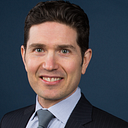How Stakeholder Management Fuels Vital Farms’ Growth
B Corp Sees Positive Investor Response to Stakeholder Governance Model

When COVID-19 began its spread in the United States, the nation’s food supply chain felt immediate effects that disrupted production and distribution. Among the businesses able to weather the disruptions is Vital Farms, an ethical food company based in Austin, Texas, that markets pasture-raised egg and butter products — and recently raised $200 million in capital in one of this year’s notable IPOs.
As a Certified B Corporation since 2015, Vital Farms also balances purpose with profit through a commitment to its stakeholders — its crew members and farmer network, customers, consumers, community, the environment, and stockholders — that has provided a solid structure during its journey to become a publicly listed company and its strategy to weather COVID-19, says Russell Diez-Canseco, President and CEO at Vital Farms.
“The way we operate is, I’m not going to ask anybody to do something I don’t want to do,” he says. “We’ve always tried to be as transparent as we can. We over-communicate what we’re doing and why we’re doing it.”
Recently I spoke with Diez-Canseco as part of my research on businesses with a social mission to learn more about the B Corp’s strategy for dealing with COVID-19, why the company pursued an IPO, and how he personally came to adopt a stakeholder mindset.

How did Vital Farms adapt its operations for COVID-19 response? How did the company respond to take care of the various stakeholders that rely on it?
Diez-Canseco: We are thoughtful about how we care for the people in our span of care regardless of whether there’s a pandemic. We’re already wired to have only full-time crew members with full benefits and health insurance, and we pay more than the living wage. We had some things going on that would create resilience for our people no matter what came their way.

In February, we started getting signals about what was happening in China. We started preparing by stockpiling cartons. As it started to come closer to our farms and our egg packing plant, we started to implement personal protective equipment requirements for our people. We started to question them about any symptoms they had. The things that have become commonplace, I think we were a little bit out in front of that with our people.
We shut down our office in Austin the second week of March, and we have declared that we won’t reopen it until at least the second half of 2021. Those were relatively easy decisions to make because the way we operate is, I’m not going to ask anybody to do something I don’t want to do.
There was no significant disruption to the supply chain. A very small number of people in our operations in Springfield have tested positive for COVID-19. We did everything we could to take care of them, ensure free onsite testing for our crew, and thankfully it didn’t spread. Because we were being so thoughtful about our response, we didn’t have any of that kind of panicked reaction that some other food producers saw when somebody tested positive and then nobody showed up to work the next day.
We’ve always tried to be as transparent as we can. We over-communicate what we’re doing and why we’re doing it. And I think our crew members trust that we care about them and are trying to do the right thing for them.
They don’t always think it’s so comfortable to wear a mask. They wish they could have breaks with more of their friends instead of in isolation. But it seems to be working. So that’s what we’re focused on.
How did Vital Farms make its journey to be a publicly traded company? Can you share some of the process and the key people involved, such as directors and investors?
Diez-Canseco: Our founder, Matt O’Hayer, took the approach of using growth capital a little bit at a time. So every year or two years, we would do a fund raise. We had plenty of access to add capital in the private markets and, more importantly, from impact investors. That was the key for us. Because our board was made up almost entirely of impact investors who are very supportive. But even they — the very best, most aligned investors you could ask for — still have to put the money back.
We got to a point where the valuations were starting to get higher and the size of the company was starting to get bigger. We hit some natural limit of our ability to just keep doing what we’re doing without having to sell out.
We could sell the company to a strategic acquirer, maybe somebody who’s already in one of the businesses we’re in or maybe an adjacency. We could sell the company to a controlling interest, to an investor, maybe a private equity firm. Or we could go public. And we did not necessarily believe that the private options would result in a fundamentally different valuation than the public option. But what the public option let us do was remain independent.
The reality is, we’re a B Corp and a public benefit corporation. So everybody who invested in us at the IPO and since knows that our board has a fiduciary responsibility to ensure that we are delivering on our commitments to all stakeholders, not just stockholders, and we may make choices on behalf of the company that do not maximize shareholder value. And then we had a successful IPO.
So I think the market embraced what we’re doing, because they did it with their eyes wide open. They wanted to invest in a company that actually behaved the way we were telling them we behaved and believed what we told them we believed. And they didn’t want to see a big change in that.
Tell me a little bit about your personal journey to adopting a stakeholder-driven business focus.
Diez-Canseco: When I went to business school 20 some odd years ago, I was firmly in the Milton Friedman camp, and I’m a total convert now. And it was really Vital Farms that helped me get there.
I started to become much more aware of food systems before Vital Farms, which is what, in part, let me to seek them out. But it wasn’t till I got here and I saw the execution, and I saw it in practice.
So I could spend more time with my family, I decided to look for a job here in Austin that required less travel. I found this company in Austin called Vital Farms, which was producing the kind of pasture-raised food that my wife and I were buying for our family at the farmer’s market and directly from farmers. But it wasn’t something we thought you could get in a grocery store. The people who are being made sick by their food in this country are not the people at the farmer’s market probably, right? They’re a whole other group of people who don’t have the time or the money to do that. So here was a company that had the potential to democratize better food. And I was hooked.
I used to have more of a fixed mindset or a fixed time mentality that, sure, if the company is only generating so much economic value and you want to reapportion that in a way that doesn’t maximize shareholder value, essentially, it’s just charity. What I’ve come to firmly believe is that when your work can make it sustainable for all of your stakeholders, you actually grow the pie. It’s not just reallocating fixed resources. So I might argue that everything we’ve done has, over the long haul, ensured great shareholder outcomes.
B The Change gathers and shares the voices from within the movement of people using business as a force for good and the community of Certified B Corporations. The opinions expressed do not necessarily reflect those of the nonprofit B Lab.


